Speaking surname: why did comrades-in-arms and enemies hate General Shkuro
Categories: History
By Pictolic https://pictolic.com/article/speaking-surname-why-did-comrades-in-arms-and-enemies-hate-general-shkuro.htmlIt is well known that the Civil War that broke out in Russia after the 1917 revolution was protracted and very brutal. There was no place for chivalry in it, but still some of its "heroes" earned a special reputation. One of the most controversial figures of that time, of course, can be considered the Cossack general Andrei Grigoryevich Shkuro, who was despised even by his colleagues.
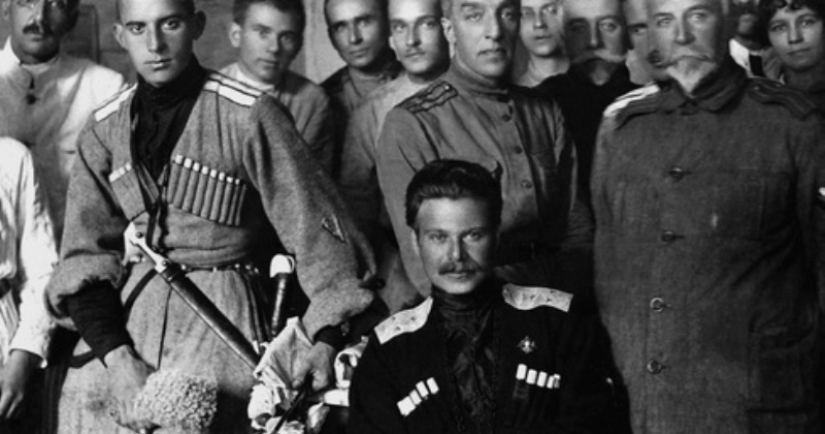
General Shkuro earned the same nickname both from his fellow members of the White Guard movement and from the commanders of the Red Army. "Skin", he was called with disgust by "black Baron" Wrangel and the commander of the 1st Cavalry Army Semyon Budyonny. Surprisingly, they were both right, since this antihero was born in 1887 in the village of Pashkovskaya near Yekaterinodar in the family of the village of Grigory Shkura.
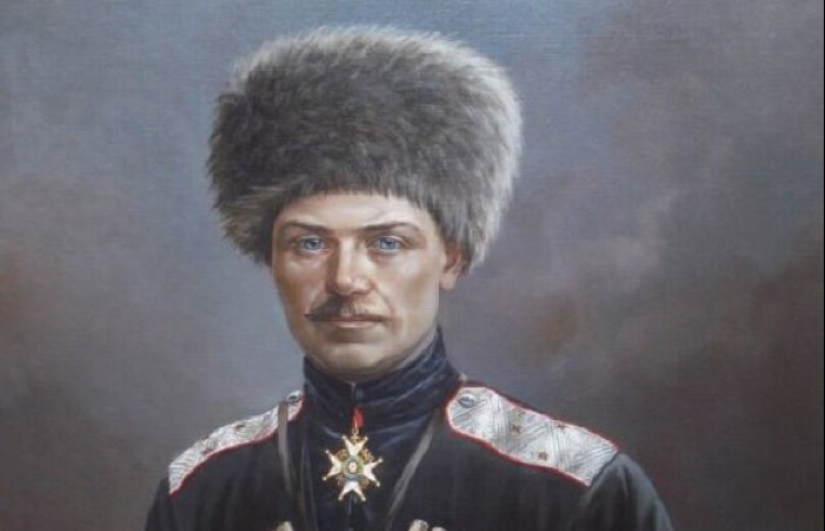
The father proudly wore his surname, inherited from his ancestors, but it weighed on his son. Immediately after the revolution, officer Andrei Shkura changed his surname to a more noble one and became Shkuro. It was with this surname that he went down in history and became despised by everyone who ever dealt with him.
The official biography of Shkuro says that he graduated in 1907 from the 3rd Moscow Cadet Corps and was accepted into the Cossack hundred of the Nikolaev Cavalry School in St. Petersburg. Then the young Cossack was transferred to the 1st Uman Cossack Regiment of the Kuban Cossack Army, stationed in the fortress of Kars in Persia (now the territory of Turkey).
It was in Kars that Andrei Shkuro distinguished himself for the first time, in a good sense of the word, and showed remarkable bravery in fights with members of local gangs. I must say that the Cossack had a lot of courage — he was a desperate hack, despised death and ... the orders of commanders. For this, disciplinary penalties were often imposed on the young warrior, but in general he was in good standing.
Although Shkuro was considered a dashing guy among his fellow soldiers, no one really knew about him before the outbreak of the First World War. When Russia entered the war, he was somewhere in the vast expanses of Siberia and when he got to the location of his regiment, he had already left in full force for the theater of military operations.
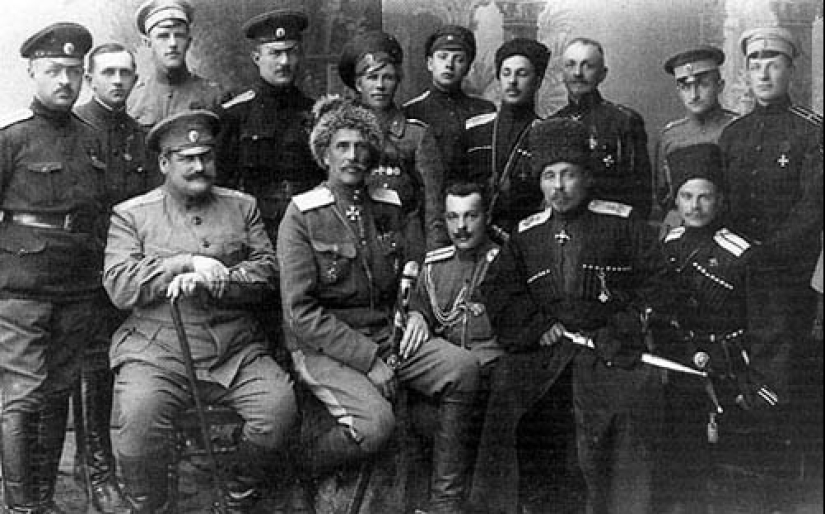
Officers of the 3rd Cavalry Corps. The first one on the right is A. G. Shkuro
The late officer was taken to the position of platoon commander in the 3rd Khopersky Regiment, with whom Shkuro still got to the front. There he set to work and the commanders often pondered whether to put an officer prone to arbitrariness on trial or reward him for initiative and courage. "Sooner or later this fellow will be hanged," the senior officers said among themselves and looked into the water.
Shkuro, well aware that playing on the nerves of the leadership will not work for a long time, he himself proposed to create a sabotage mounted detachment under his command to beat the enemy in the deep rear. With relief, he was given the go-ahead, having sensibly reasoned that such a partisan could be of use, especially since, if anything, the loss would be small for the army.
Having received permission, Andrey Shkuro took up organizational issues with a twinkle. Being a vain man by nature, he came up with a banner with a wolf's head on a black background for his partisan hundred. A little later, the Cossacks of his "Wolf Hundred" began to wear a wolf fur trim on their uniforms, by which they were all recognized.
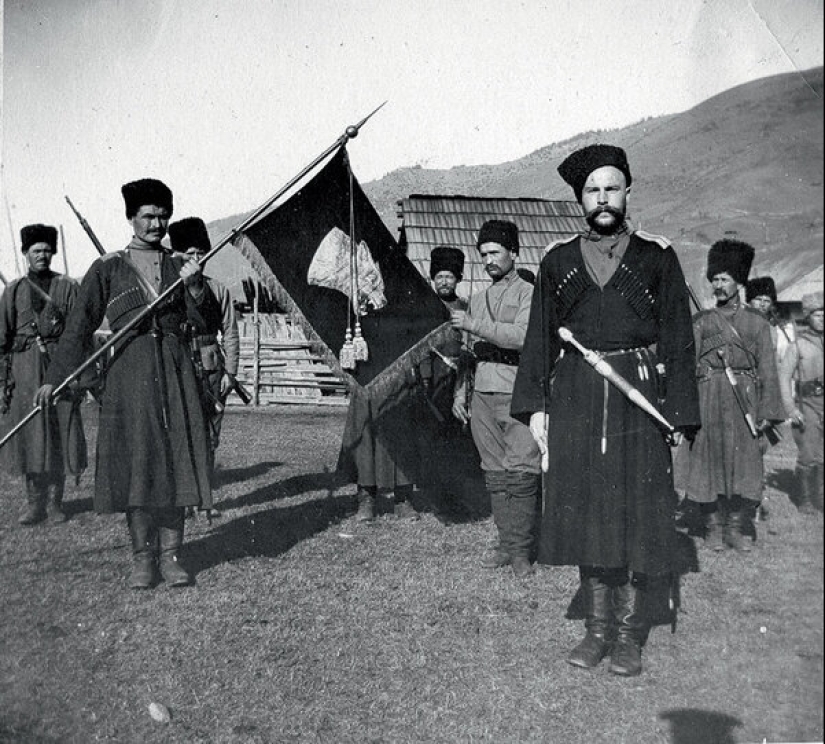
According to Shkuro, the wolf symbolism was supposed to frighten the enemy. But his squad gave the Germans and their allies a lot of trouble without it. A mobile and incredibly combat-ready hundred, led by a dashing ataman, appeared out of nowhere, inflicted damage to the enemy and disappeared without a trace. The success of the detachment was highly appreciated by both contemporaries and descendants — someone even suggested calling Shkuro the founder of the Russian special forces, but it did not work out and soon you will find out why.
Despite the military successes, some of the ataman's associates treated him with disdain. Baron Wrangel, already during the Civil War, claimed that the combat path of the partisan detachment of Shkuro was not as heroic as they are trying to portray it.
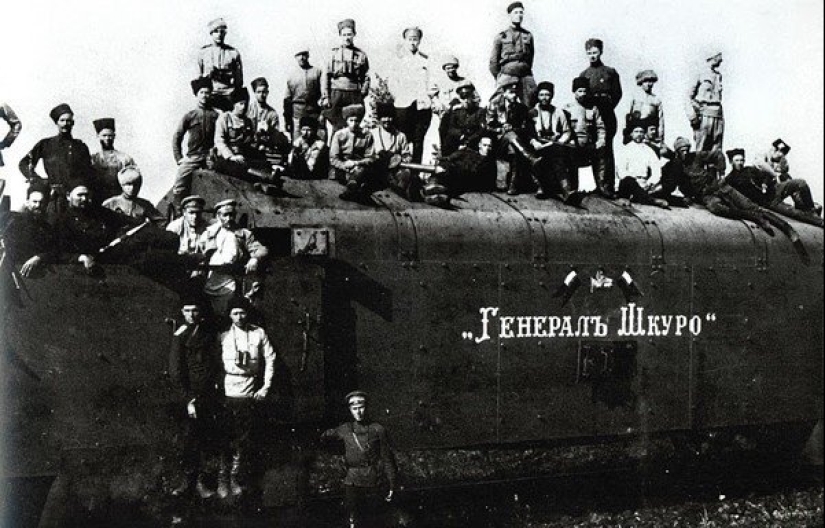
After the February Revolution, Shkuro was transferred to the Caucasian Front, where he remained until the very end of the war. In December 1917, the colonel's life was almost cut short. In a skirmish with unknown people, he was seriously wounded and miraculously survived. Someone claims that they were Bolsheviks, someone is sure that the ataman was tracked down by the citizens robbed by him during the war, but most likely it was just a drunken skirmish that broke out out of the blue because of the explosive nature of the Cossack.
For some time, Shkuro was forced to be seriously treated and nothing was heard about him for almost a year. But as soon as he recovered from his injuries, he immediately declared his desire to fight the Bolsheviks in the ranks of the White Movement. It was at this time that he was awarded the rank of general, which the ataman was not entitled to either by knowledge and skills, or by merit.
The newly minted general began to assemble his army and, as expected, not the best cadres came under his banner. Notorious scoundrels gathered at Shkuro, who do not recognize commanders, who love to drink, go all out with women and, of course, are not burdened with principles and morality.
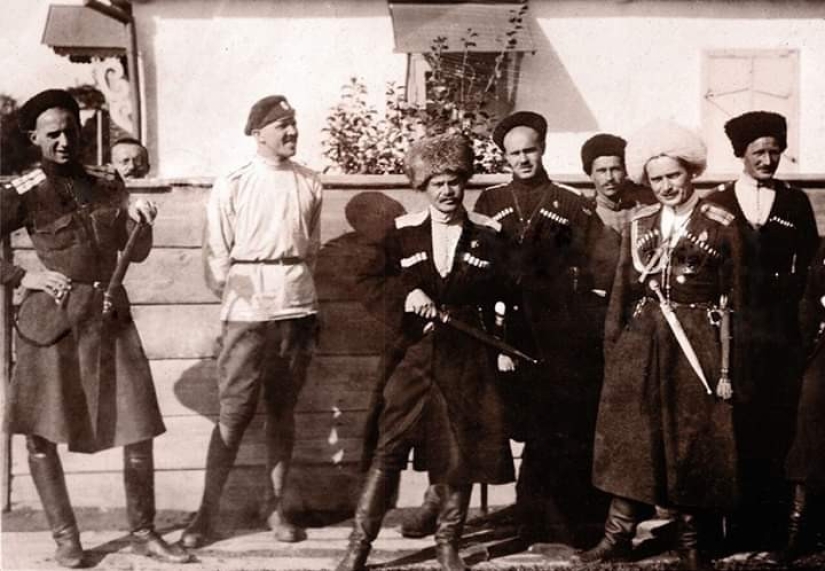
Shkurovtsy returned from combat raids loaded with abundant trophies — they did not hesitate to rob and engaged in outright looting. At the same time, not only the enemy got it, but also the civilian population, who met the general's Cossacks as liberators from Bolshevism. In addition, the brave ataman's soldiers raped, tortured, hanged, burned and buried alive in the ground all those suspected of having ties with the "reds".
Vasily Shulgin, an authoritative figure of the White Movement, wrote the following about Shkuro and his subordinates:
Nevertheless, Shkuro was tolerated, as his cavalrymen inflicted enormous damage on the Red Army. In June 1919, the general's merits in the fight against Bolshevism were awarded a high state award, albeit a British one. King George V himself awarded Shkuro the Order of the Bath.
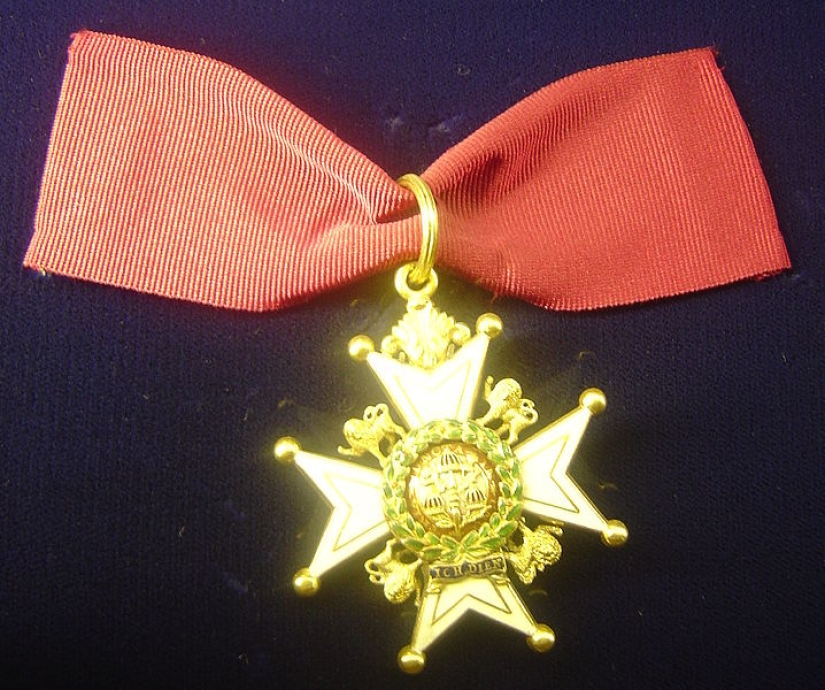
But in October 1919, the heroic gloss fell from the brave general. Together with Mamontov, Shkuro suffered a crushing defeat from Budyonny's army near Voronezh. Accustomed to easy victories and drunkenness, the Cossacks were stunned and immediately began to desert en masse. In just a month, barely 500 people remained from the full-fledged corps. Wrangel was furious and demanded that the leaders of the White Movement remove Shkuro from command.
Soon the "black baron" replaced Denikin and headed the White Guard. In 1920, Shkuro was miserably expelled from its ranks and drove abroad in disgrace. In Europe, the former general worked in circuses, performing horse tricks. He was also noted in the cinema — he got an episodic equestrian role in "One Thousand and One Nights" with Alexander Vertinsky in one of the main roles.
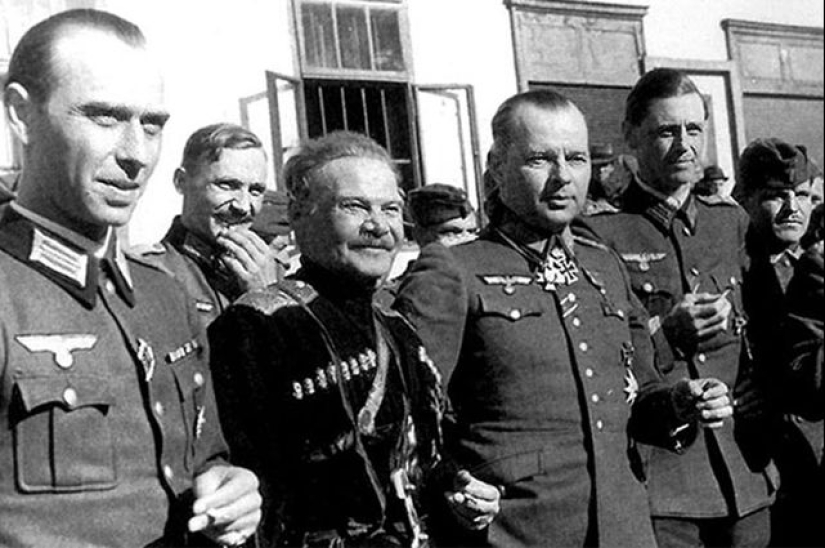
But the role of a circus rider and an extra in the cinema did not suit Shkuro, so in 1941 he, among the few former officers, offered his services to Hitler. He justified his decision simply — "At least with the devil against the Bolsheviks!". Starting with the work of an agitator, Shkuro quickly made a career for the Nazis. In 1944, he was appointed head of the Reserve of Cossack Troops at the General Staff of the SS Troops.
The scoundrel was enlisted as an SS Gruppenfuhrer and an SS lieutenant general. He even had the right to wear a German general's uniform and receive maintenance for this rank. Shkuro developed a vigorous activity among the Germans, planning to organize sabotage groups of Cossacks in the rear of the Red Army. He also actively trained reservists, who were then sent to Yugoslavia to fight Tito's partisan detachments.
But the new owners quickly got a hat and forgot their "six"-a collaborator. In 1945, Shkuro, already seriously fearing for his life, tried to switch to the British, naively believing that the order once received from the king would play a role. But the proud British did not want to get dirty and in May 1945 handed over the former ataman, circus performer and SS general to the Soviet authorities.
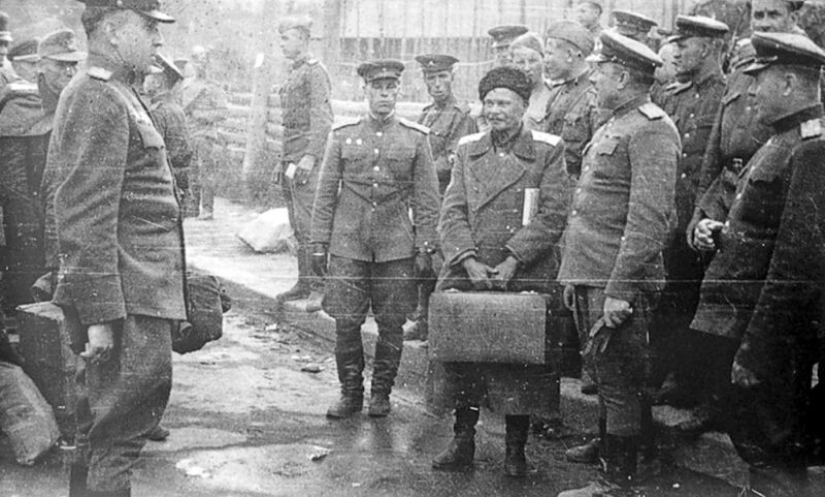
For two years, the traitor languished in the Lefortovo prison, awaiting his fate, and on January 16, 1947, the Military Collegium of the Supreme Court sentenced Andrei Shkuro to death. Rightly believing that a traitor is not worth a bullet, NKVD officers simply strung up the heroic ataman in the courtyard of the prison, a few hours after the verdict. So the prophecy that followed the troublemaker, drunkard and marauder from the first days of his career came true — the gallows overtook Shkuro.
Recent articles

It's high time to admit that this whole hipster idea has gone too far. The concept has become so popular that even restaurants have ...

There is a perception that people only use 10% of their brain potential. But the heroes of our review, apparently, found a way to ...

New Year's is a time to surprise and delight loved ones not only with gifts but also with a unique presentation of the holiday ...